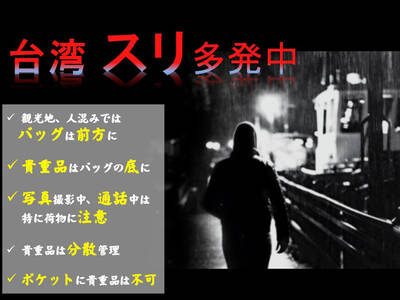A Japanese engineer who oversaw the construction of two nuclear power plants spoke in Taipei yesterday about the danger of such plants and urged Taiwan not to let the Fourth Nuclear Power Plant go into operation.
During the seven years he worked at General Electric Co (GE), Yoichi Kikuchi was involved in the construction of the No. 2 reactor at the Tokai nuclear power plant and the No. 6 reactor at the Fukushima Dai-ichi nuclear power plant.
He left the company in 1980.
In 2002, he became concerned about the possible dangers of a major earthquake in the area near the Hamaoka nuclear power plant, about 180km southwest of Tokyo, and participated in anti-nuclear protests urging the plant’s closure.
The plant was shut in 2011 after the Fukushima Dai-ichi disaster.
Kikuchi visited the Fourth Nuclear Power Plant construction site in Gongliao District (貢寮), New Taipei City (新北市), in 2006 and gave it a score of three points out of a possible 100, only for “the generosity of Taiwan Power Co [Taipower] for letting me visit the plant.”
“I was shocked to see that conditions at the plant’s construction site were more ill-managed than the construction of ordinary buildings I often see in Japan ... for example, I saw a worker welding by himself, with no supervisor at his side,” he said of the 2006 visit.
He said in his experience as a directing supervisor at the Japanese plants, all welding work needed overseers and had to pass many checks, but Taipower answered his questions about unsupervised welding by saying that it “trusted the downstream unit,” which he found unbelievable.
The unpredictability of earthquakes is what concerns him most about nuclear safety issues, he said, even if plants are not located on fault lines.
Taiwan and Japan both face the threat of major earthquakes , many of which have occured at previously unknown blind thrust faults, with unforeseen severity, he said.
“The designs of nuclear power plants are already flawed and more flaws appear during construction, as many parts of the work are contracted out and the contractors mostly tend to conceal the mistakes they make for fear of not getting contracts for future projects,” he said.
Construction work at plants in Japan is often far from perfect and the working culture is filled with lies, he said, adding that he did not think this was a problem just in Japan.
A man in the audience surnamed Kuo (郭), who said he worked at Taiwan’s nuclear plants for almost 30 years, including the Fourth Nuclear Power Plant site, said construction at the new plant was conducted according to precise procedures and he could “guarantee that it could at least get 70 to 80 points [out of a possible 100],” which should be “OK” in terms of safety.
Kikuchi cited several examples in Japan of broken components which were discovered after reactors began operating, exposing workers doing repairs to high levels of radiation and causing the loss of large amounts of money in stopping the reactors to be repaired. Even today, the skills and technology for building nuclear power plants are immature and limited, and examinations or checks cannot guarantee safety, he said.
Nuclear power plants are so complicated that most technicians are “only specialists at a specific part of the plant,” he said.
It is unbelievable that any “expert” can guarantee the safety of a nuclear power plant, Kikuchi said.

The Japan-Taiwan Exchange Association has cautioned Japanese travelers to be vigilant against pickpockets at several popular tourist spots in Taiwan, including Taipei’s night markets, the Yongkang Street area, Zhongshan MRT Station, and Jiufen (九份) in New Taipei City. The advisory, titled “Recent Development of Concerns,” was posted on the association’s Web site under its safety and emergency report section. It urges travelers to keep backpacks fully zipped and carried in front, with valuables placed at the bottom of the bag. Visitors are advised to be especially mindful of their belongings when taking photos or speaking on the phone, avoid storing wallets and

ENDORSING TAIWAN: Honduran presidential candidate Nasry Afura said that Honduras was ‘100 times better off’ when it was allied with Taipei The Ministry of Foreign Affairs yesterday said it would explore the possibility of restoring diplomatic relations with Honduras based on the principle of maintaining national interests and dignity. The ministry made the remarks in response to reporters’ questions regarding an article titled: “Will Taiwan Regain a Diplomatic Ally?” published in The Diplomat on Saturday. The article said Honduras’ presidential election in November could offer Taiwan the chance to regain an ally, as multiple candidates have promoted re-establishing diplomatic relations with Taiwan. Honduras severed diplomatic ties with Taiwan in March 2023 in favor of Beijing, but since switching its diplomatic recognition,

Scoot announced yesterday that starting in October, it would increase flights between Taipei and Japan’s Narita airport and Hokkaido, and between Singapore and Taipei. The low-cost airline, a subsidiary of Singapore Airlines, also said it would launch flights to Chiang Rai in Thailand, Okinawa and Tokyo’s Haneda airport between December and March next year. Flights between Singapore and Chiang Rai would begin on Jan. 1, with five flights per week operated by an Embraer E190-E2 aircraft, Scoot said. Flights between Singapore and Okinawa would begin on Dec. 15, with three flights per week operated by Airbus A320 aircraft, the airline said. Services between Singapore

A fourth public debate was held today about restarting the recently decommissioned Ma-anshan Nuclear Power Plant, ahead of a referendum on the controversial issue to be held in less than two weeks. A referendum on Aug. 23 is to ask voters if they agree that “the Ma-anshan Nuclear Power Plant should continue operations upon approval by the competent authority and confirmation that there are no safety concerns.” Anyone over 18 years of age can vote in the referendum. The vote comes just three months after its final reactor shut down, officially making Taiwan nuclear-free. Taiwan People’s Party Chairman Huang Kuo-chang (黃國昌) represented